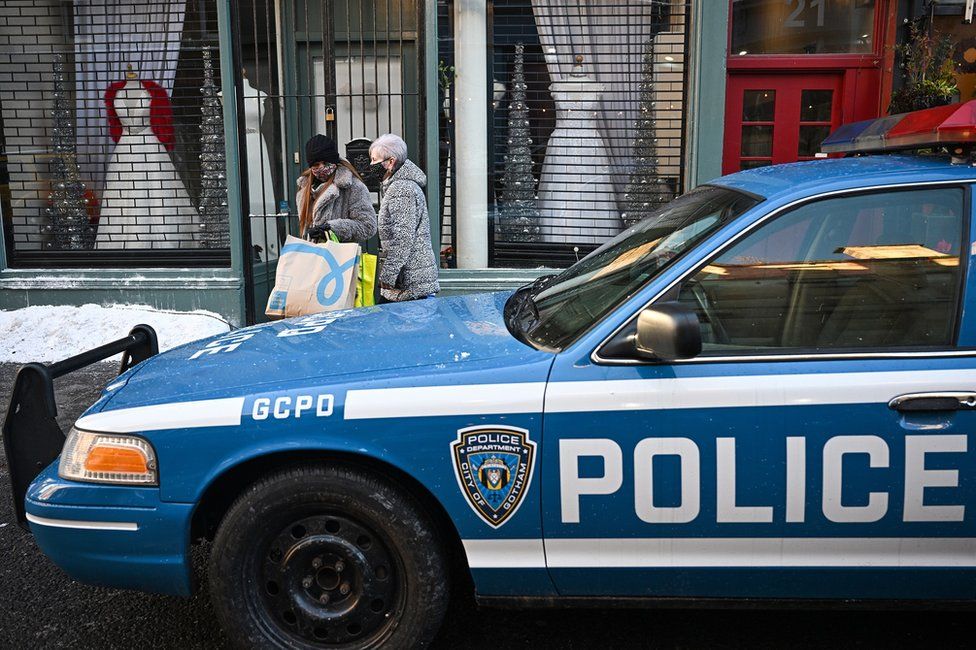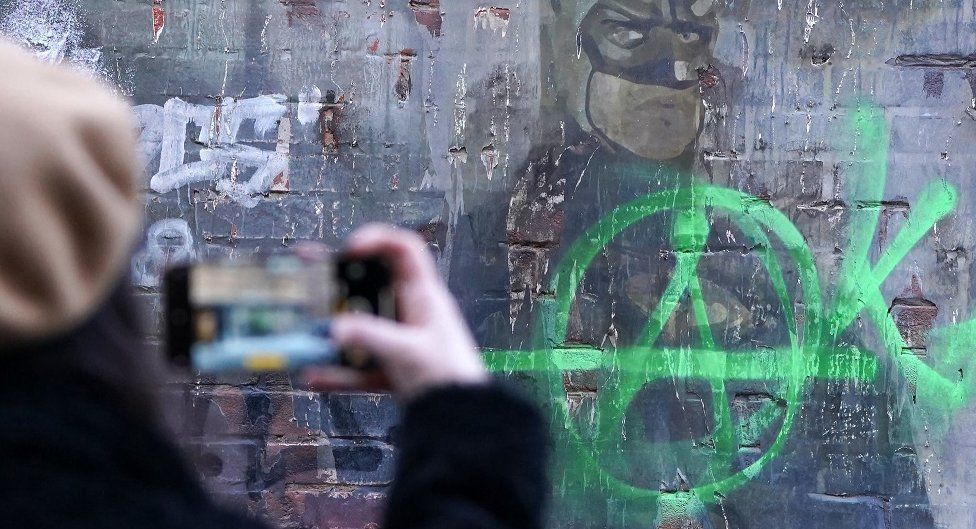The new Batgirl movie has been scrapped by Warner Bros Discovery months before its planned release.
Reportedly budgeted at more than $70m (£58m), it was due to be shown in cinemas and on the streaming service HBO Max later this year.
The New York Post reported that the decision had followed a poor reaction to test screenings.
However, Warner Bros said the move reflected its “leadership’s strategic shift”.
The production was filmed entirely in Glasgow and the local council said it had brought a significant economic benefit to the city.
The film was based on the DC Comics character Barbara Gordon – or Batgirl – played by Leslie Grace.
She appeared alongside Michael Keaton as Batman, Brendan Fraser as villain Firefly and JK Simmons as Commissioner James Gordon.
 IMAGE SOURCE,PA MEDIA
IMAGE SOURCE,PA MEDIA IMAGE SOURCE,GETTY IMAGES
IMAGE SOURCE,GETTY IMAGESWarner Bros also confirmed that Scoob! Holiday Haunt would be scrapped.
A spokesperson for the firm said: “The decision to not release Batgirl reflects our leadership’s strategic shift as it relates to the DC universe and HBO Max.
“Leslie Grace is an incredibly talented actor and this La Sportiva Hiking Boots decision is not a reflection of her performance.
“We are incredibly grateful to the filmmakers of Batgirl and Scoob! Holiday Haunt and their respective casts and we hope to collaborate with everyone again in the near future.”
The unusual move follows a change in leadership after Warner Bros merged with Discovery in May 2021, with David Zaslav its new CEO.
According to the Hollywood Reporter, Zaslav has prioritised cost-cutting measures and refocusing the company on creating theatrical films rather than projects for streaming.

‘Extremely rare’
Analysis by Steven McIntosh, entertainment reporter
 IMAGE SOURCE,PA MEDIA
IMAGE SOURCE,PA MEDIAFilms run into all kinds of issues while they’re being made. Projects jump from one studio to another, directors and actors come and go, and scripts often get stuck in what’s known as “development hell” for years before the cameras even start rolling.
But what’s happened with Batgirl is much more unusual. When a film is already in the can, and $70m (£58m) has been spent, it’s extremely rare for it not to see the light of day.
The film reportedly had not tested well with audiences in early screenings. To a certain extent, this isn’t unusual for a big action movie – the special effects often aren’t finished at the time the test screenings take place, which reduces viewers’ enthusiasm.
But a film company will still have a sense of whether or not they’re on to a winner. In this case, it seems Batgirl was caught in the middle – not thought to be worthy of a cinema release, but equally not financially viable to release only for streaming subscribers. Shelving it means the company won’t have to carry the losses on its books.
There is also a strategic change at parent company Warner Discovery, which has decided it will no longer produce big-budget blockbusters solely for HBO Max,Mephisto Shoes the streaming service it owns.
That’s a significant change from the “day and date” strategy adopted by the previous WarnerMedia CEO, which saw big blockbusters released on streaming at the same time as in cinemas.
That might have made sense following the pandemic, but some industry figures are now starting to push back. Reverting to the traditional theatrical window makes more sense for many, particularly in a summer where films such as Top Gun: Maverick have been taking huge amounts of money at the box office, while enjoying the cultural relevance a cinema release brings with it.

Batgirl was offered £150,000 by Glasgow City Council as an incentive to film in the area but it has not been paid.
At the time Screen Scotland said any production given public money was expected to hire locally.
Filming began at the end of 2021 and continued until March.
A spokesman for the local authority said the filming of Batgirl had brought a very significant economic benefit to the city – including 450 Glasgow-based crew jobs, about 1,300 Scottish supporting artists and many subcontractors working as tradespeople and in traffic management and security.
He added: “Any decision on the release of the production is very much a matter for Warner Bros. The £150,000 grant support has not been paid, and discussions continue with the producers.”
 IMAGE SOURCE,GETTY IMAGES
IMAGE SOURCE,GETTY IMAGES
The films that were never seen by audiences
- Superman Lives: Director of cult film Clerks, Kevin Smith, tells a story in his stand-up shows about when he was commissioned to write a version of Superman in the late 90s – with the condition the protagonist had to fight a giant spider. It was one of many ideas put forward for the film, with Smith’s script thrown out by director Oboz Boots Tim Burton – who also chose Nicolas Cage to be the film’s leading man. More than $10m (£7.18m) of pre-production money was invested in Superman Lives but Warner Bros cancelled the operation three weeks before shooting was due to begin – one documentary suggested it was because of a series of big-budget flops that the company made in 1997.
- 20,000 Leagues Under The Sea: The Australian government had offered $20m to secure the production of a remake of Jules Verne’s classic story. Years of work was put into the film before director David Fincher (Fight Club, Se7en) left the project in 2013. He had been courting Brad Pitt to play the lead role of Ned Land, but Pitt officially turned the role down earlier that year.
- Yellow Submarine: In 2009, Disney and director Robert Zemeckis announced a remake of the Beatles’ 1968 musical comedy, due for release in 2012. According to the Hollywood Reporter, this was down to the “disastrous” $6.9m opening for Zemeckis’ $150m Mars Needs Moms movie in 2011 – though it adds the film faced a number of issues including budget problems beforehand.
